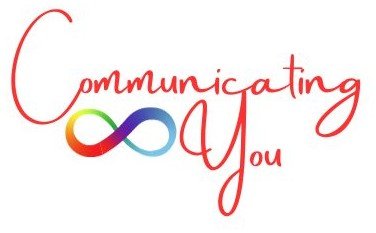What does it mean to be “neurodiversity affirming?”
This may be a concept you are familiar with, or one you are not. If I’m going to say that I’m a neurodiversity affirming therapist though, it would probably be helpful if I gave a definition and/or explained what that means to me. If you look at the Merriam-Webster definition of neurodiversity, three definitions arise:
individual differences in brain functioning regarded as normal variations within the human population
the concept that differences in brain functioning within the human population are normal and that brain functioning that is not neurotypical should not be stigmatized
the inclusion in a group, organization, etc. of people with different types of brain functioning
In the case of what it means for me to be a neurodiversity affirming therapist, take a look at definition two. Society has often deemed a single communication style or way of being in the world as “typical” and everything that falls out of that deemed norm is considered “disordered.” I don’t see anyone’s communication as being disordered, because that implies that there is something to be fixed or ordered. Everyone has unique strengths, interests, wants, needs, communication styles, etc. and when my clients receive services from me, my goal is to help them find out who they are and figure out what supports can help them achieve success according to their own definition - not society’s definition. Compliance with a task is never my goal - I always look to support my clients utilizing their strengths and interests, never exploiting them. I value self-advocacy and boundaries. I honor all forms of communication - gestures, vocalizations, writing, spelling, body language, augmentative communication, etc. I recognize that sensory and emotional regulation affect communication and seek to provide trauma-informed support.
I recognize that my lived experience is that - mine, not anyone else’s. My goal as your therapist will be to learn about your lived experience and help you communicate the way you want. I want you to feel comfortable communicating you and also recognize that there are spaces in this world for some people where being fully themselves may not be the safest choice. I seek to develop relationships with my clients and their families where bravery can occur - bravery to try new or hard things and the bravery to communicate when something isn’t right for you.
I admittedly have not always practiced quite this way. My field of university study was even called “Communication Sciences and Disorders.” When I first began working with autistic clients especially, I was taught that best practice involved a lot of behavior modification. I taught language and did therapy with a lot of structure, which in some ways probably benefitted me more so than it did my clients. Essentially my job was to help anyone with communication challenges or differences not have challenges or differences anymore and appear like a neurotypical communicator. Communication and learning language is much more fluid and individualized than just a single set of rules, developmental “norms,” or expectations however, and I credit the disabled and autistic individuals that have taught me otherwise for helping me make a shift.
Early in 2022, I was honored to be accepted as a member of the Therapist Neurodiversity Collective, of which I still am a member. If you want to learn more about the ethics I subscribe to and get access to wonderful educational resources, please visit their website: Therapist Neurodiversity Collective - Therapy, Advocacy, Education (therapistndc.org).
